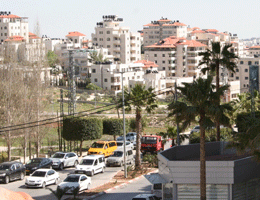DeWaal is no lightweight - he's a visiting fellow at the RIIA and has a distinguished background in the MoD and the Diplomatic Service. His short paper is a study not of the political decisions to get involved in Afghanistan and Iraq – we know that the first of those was spasm, the second a deception – but how the Blair government managed to make such a Horlicks of military deployments both during and in the long years after the conflicts.
At its most political, it condemns Tony Blair’s Downing Street and its ‘sofa government’:
“Blair’s tenure as prime minister was noted for the practice of decision-making in small circles of selected (and therefore supposedly tight-lipped) advisers – an approach condemned by, among others, the Butler Review of intelligence on weapons of mass destruction.”A style that Blair’s Chief of Staff, Jonathan Powell, defended as a system that produced good decisions so long as you had “the right people in the room” - from which deWaal takes his title.
Obsession
The problem was, de Waal argues, that “the right people” didn’t have quite the right attitude to managing the military:
“Politicians and civil servants did not wish to be accused of interfering with military planning, and so did little to ensure that military action supported political aims.”And Downing Street’s infamous obsession with the next day’s headlines led to astonishing recklessness:
“In 2002–03, Britain decided to make a ground force contribution to the invasion of Iraq …"That’s to say, the decision on the type of intervention, ‘boots on the ground’ not the decision per se to oust Saddam by military force – that had already been taken on the false premise we now know it to have been:
“… with implicit responsibility for post-war security in that country’s southern provinces, primarily because politicians feared they would have problems with the British army if it was left out, and that these problems would find their way into the media.”Later, in another part of the forest:
“In 2009, Downing Street was not convinced of the military need to send reinforcements to Afghanistan, but agreed to do so because it wanted to prevent hostile press briefings by the military.”The explanation? Well, the obvious. But also the …
“incoherence, inconsistency and opacity …”… of Downing Street’s “model” for working with the military. No10 was:
“apprehensive of the close relationship between the armed forces and the media, and were therefore reluctant to challenge military opinion.”And as a result, did nothing at all to query the plans of those senior officers who:
“felt their role was principally to support the institutional interests of their branch of the armed forces.”"Poor judgment"
De Waal’s main focus isn’t to explain, condemn or excuse political decisions - though some Blair apologists read it as such. That's odd. In measured language - ever the diplomat, perhaps - his judgment is scathing:
“It seems reasonable to accuse Blair of poor judgment – at the very least – in overestimating both the threat from Saddam Hussein’s regime and the prospects of installing a viable replacement in Iraq.”And he recalls the admission of political misjudgment that Sir David Omand shared with the Chilcot inquiry. The admission that the immediate pre-war political strategy failed catastrophically in the case of Iraq:
“He cited the chess concept of Zugzwang, ‘where you force your opponent into a position where they have to move and every move they can make will worsen their position’, and showed how ‘instead of putting Saddam in that position, we turned out to be in that position ourselves because we were forced to […] get the [UN] inspectors to look for the smoking gun in double quick time before the window for invasion closed’.”Makes you wonder how serious the UN/weapons inspectors’ route really was – and how much Blair was, contrary to his assertions at the time, wholly governed by the military timetable.
Code
De Waal ends recommending a new code to circumscribe governments’ decision making on the use of force – not a bad idea since that decision, peace or war, is the most grave a democratic government can take.
And the code’s aim - he suggests it should be approved by parliament - wouldn't be to constrain a government's proper and legal use of force. It would be to ensure that political and military decisions were aligned and supported each other - as they self-evidently did not in the first decade of this century.
He draws on the American model where:
“the stronger tradition of political-military debate and a clear legislative framework give the United States assets in this area that are not yet available to the United Kingdom.”Like I say. Worth reading - the paper itself, that is, and not the gloss Tony Blair's apologists would like to put on it.


















